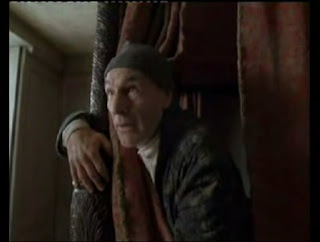Having just reviewed a film (“AVP: Requiem”) which should be used in film schools as an model of how not to construct a story, the sudden difference in following with such a well-crafted, heartfelt tale like “Juno” feels like being slung-shot from grade school to a Master’s level class in three seconds.
In the film, Ellen Page plays the uber-hip title character, a Minnesota teen who’s learned she’s newly pregnant after an experimental romp with her track running, orange Tic-Tac popping would-be boyfriend Paulie (“Superbad’s” Michael Cera) who is completely clueless as how to react to Juno’s news.
After briefly considering abortion, Juno cruises local classifieds with her friend Leah (Olivia Thurby) seeking adoptive parents. The couple Juno settles on, Mark and Vanessa Loring (played by Jason Bateman and Jennifer Garner), is well-to-do, tidy, and extremely suburban – but at the same time, couldn’t seem to be travelling in more opposite directions.
Nevertheless, Juno quickly agrees to give her baby to the Lorings with zero fanfare, anxious to get her delivery over with, and move on with life. Her father and step-mom (JK Simmons and Alison Janney), while taken aback at Juno’s pregnancy, are supportive enough to follow their daughter’s wishes to the end.
On its face, there are 10,000 ways in which “Juno” could have been a failure of a story.
Yet instead, it excels in its self-restraint – with Ellen Page (whom I completely forgot played Kitty Pryde in "X-Men 3") giving a marvelously keen performance, posing Juno as a girl terrified by her circumstances, but who hides her feelings with razor-sharp comebacks. Without this inner vulnerability via which Ellen Page balances her character’s emotions, Juno would simply be just another smart-ass from an “American Pie” direct-to-video sequel – stupid and unremarkable.
Thankfully, “Juno’s” supporting cast is just as strong – namely JK Simmons as Juno’s thoughtful, blue-collar dad (from whom she obviously inherited her sense of humor), and Jason Bateman whose character—an ex-rocker turned successful jingle writer--tragically seems to share more in common with Juno than his wife busily choosing colors for their new baby’s nursery.
The way in which everything comes together at the end of “Juno’s” efficient 92 minutes is sweet without being saccharine, poignant, funny, and best of all: intelligent.
Not a single scene or beat is wasted, nor is—at any moment—our time as the film’s audience taken for granted.
What a rare thing.









.JPG)









